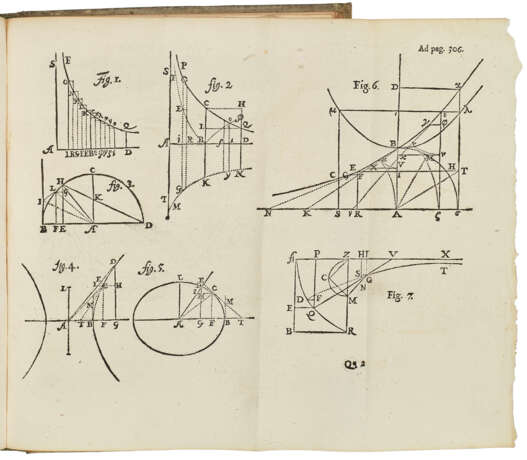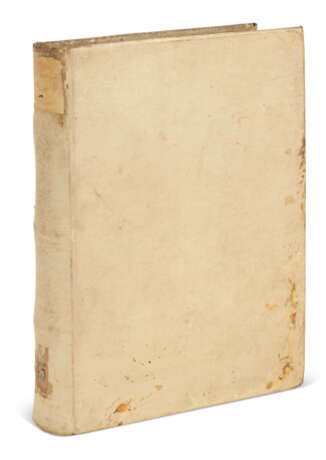ID 1129623
Lot 5 | Ars conjectandi
Estimate value
$ 12 000 – 18 000
A crisp first edition of the “first significant book on probability theory” (Norman). When Bernoulli died in 1705 he left behind a legacy of unpublished works on many topics in mathematics. “The most important of these concerned probability. Bernoulli had worried over problems of the a posteriori determination of chances for twenty years before he died, and it was the fruits of these labors that were the focus of the major treatise his nephew finally produced in 1713, the Ars Conjectandi.
“Bernoulli’s book has variously been regarded as the beginning of the mathematical theory of probability and as the end of the emergence of the concept of probability [...] The book is remarkable in many aspects, from its advances in combinatorics (including the ‘Bernoulli numbers’) to its pathbreaking analysis of the interpretation of evidence ... [and the] introduction in the fourth part of what has come to be regarded as the first law of large numbers” (Stigler, The History of Statistics, p.64). Dibner 110; Evans 8; Horblit 12; Norman 216; Parkinson p 140; PMM 179.
Quarto (193 x 146mm). With the errata leaf, 2 folding printed tables, one folding woodcut plate (lacking the blank 2Q2, a couple of quires faintly browned, minor ink marks to margin of B3v). Contemporary vellum over stiff boards, yapped edges (lightly rubbed and soiled, lacking spine label, remains of library label at foot of spine). Provenance: Ing. Akad. Bibliothecke (ink stamp) – K.K. Genie-Academie (library label) – K.K. Technische Militair Academie Bibliothek (ink stamps and library label) – Zisska und Kistner, Von Kepler bis Einstein 1988, lot 45.
| Address of auction |
CHRISTIE'S 20 Rockefeller Plaza 10020 New York USA | ||||||||||||||
|---|---|---|---|---|---|---|---|---|---|---|---|---|---|---|---|
| Preview |
| ||||||||||||||
| Phone | +1 212 636 2000 | ||||||||||||||
| Fax | +1 212 636 4930 | ||||||||||||||
| Conditions of purchase | Conditions of purchase | ||||||||||||||
| Shipping |
Postal service Courier service pickup by yourself | ||||||||||||||
| Payment methods |
Wire Transfer | ||||||||||||||
| Business hours | Business hours
|





